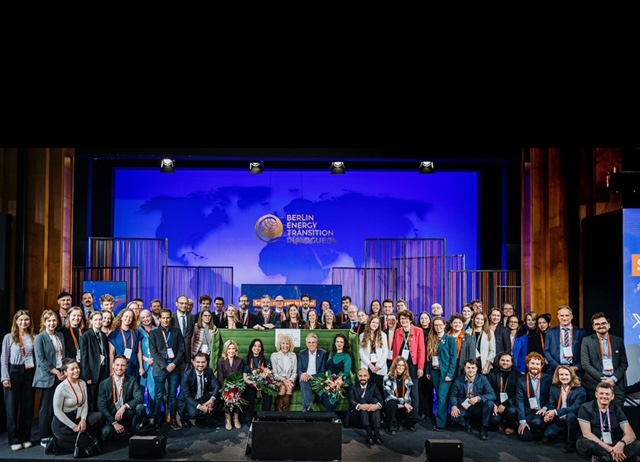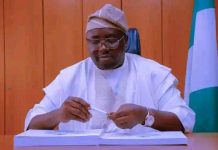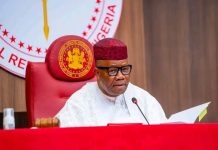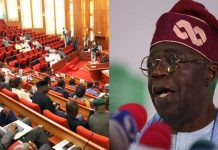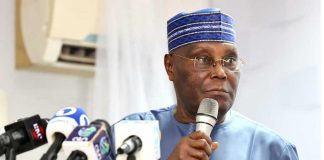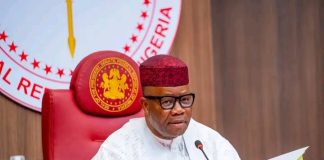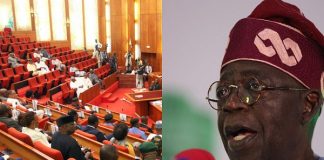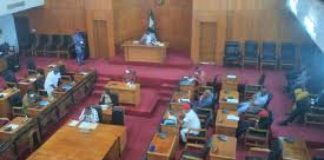🌿 Ruzu Non-Alcoholic Herbal Bitters
Ruzu Non-Alcoholic Herbal Bitters is a natural health supplement specially formulated to:
- ✅ Promote general wellness
- ✅ Detoxify the body
- ✅ Support the treatment of various ailments
Made from a powerful blend of 100% organic and medicinal herbs, Ruzu is completely alcohol-free, making it ideal for:
- 👪 All age groups
- 🌱 Health-conscious individuals
- 🌿 Anyone seeking non-alcoholic herbal remedies
Whether you're looking to boost your vitality, cleanse your system, or support healing the natural way, Ruzu Bitters offers a trusted herbal solution.
Germany’s Federal Foreign Minister Annalena Baerbock and Economic Affairs Minister Robert Habeck have called for urgent global action in clean energy investment.
Speaking at the 10th Berlin Energy Transition Dialogue (BETD 24), Baerbock highlighted the remarkable strides made in renewable energy adoption worldwide, noting a 50 percent increase in installations compared to the previous year.
She noted the pressing need to expand renewable energy infrastructure, especially in regions like Africa where 600 million people still lack access to electricity.
Baerbock emphasized the economic potential of renewables and the importance of fair and equitable expansion to combat the climate crisis.
“The expansion of renewable energy is not just a matter of environmental necessity but also of economic opportunity,” she stated.
Baerbock’s comments resonate deeply with Nigeria, a country striving to bridge its own energy gap and capitalize on its vast renewable energy potential.
Economic Affairs Minister Robert Habeck echoed these sentiments, describing the BETD as a crucial platform for global energy transition discourse.
He commended Germany’s achievements, noting that over 50 percent of the country’s electricity now comes from renewable sources. With ambitious goals to reach an 80 percent share by 2030, Habeck reaffirmed Germany’s commitment to accelerating the transition to clean energy and hydrogen usage.
He highlighted Germany’s active role in bilateral partnerships with over 30 countries, and forums like the BETD, driving collaborative efforts toward a sustainable energy future.
“Germany is not only setting goals but also forging partnerships and sharing knowledge to achieve a global transition to clean energy,” he remarked.
Both ministers stressed the significance of international cooperation in achieving global clean energy targets set for COP28 in Dubai.
Under the motto “Accelerating the Global Energy Transition,” ministers and high-ranking delegations from over 75 countries, including Nigeria, engaged in discussions with representatives of business, science, and civil society. The conference focused on strategies for reaching the necessary tripling of new global renewable capacity.
Despite record new capacities across regenerative energies, the world is not on target for the needed expansion. This was the conclusion of a special report presented by the International Renewable Energy Agency (IRENA) at the BETD, titled “Tracking COP28 Outcomes: Tripling Renewable Capacity by 2030.”
In the record-breaking year of 2023, a total of 473 gigawatts of renewable energy systems were installed globally. However, what is needed is an installation capacity of 1,000 gigawatts per year until 2030.
The BETD 24 sees itself as an implementation conference and a platform for discussing concrete solutions for the global energy transition.
For Nigeria, the implications are profound. The focus on measures required for implementing the COP28 target of tripling new capacity from renewable energy installations, as well as on the financing and infrastructure needed, is crucial.
Nigeria, with its abundant solar resources and growing energy needs, stands to benefit significantly from such global initiatives. As the world convenes to discuss and implement these ambitious targets, Nigeria hopes to leverage these international partnerships and commitments to drive its own energy transformation, ensuring sustainable development and economic growth for its burgeoning population.
If you like what we do, and are ready to uphold solutions journalism, kindly donate to the Ripples Nigeria cause.

